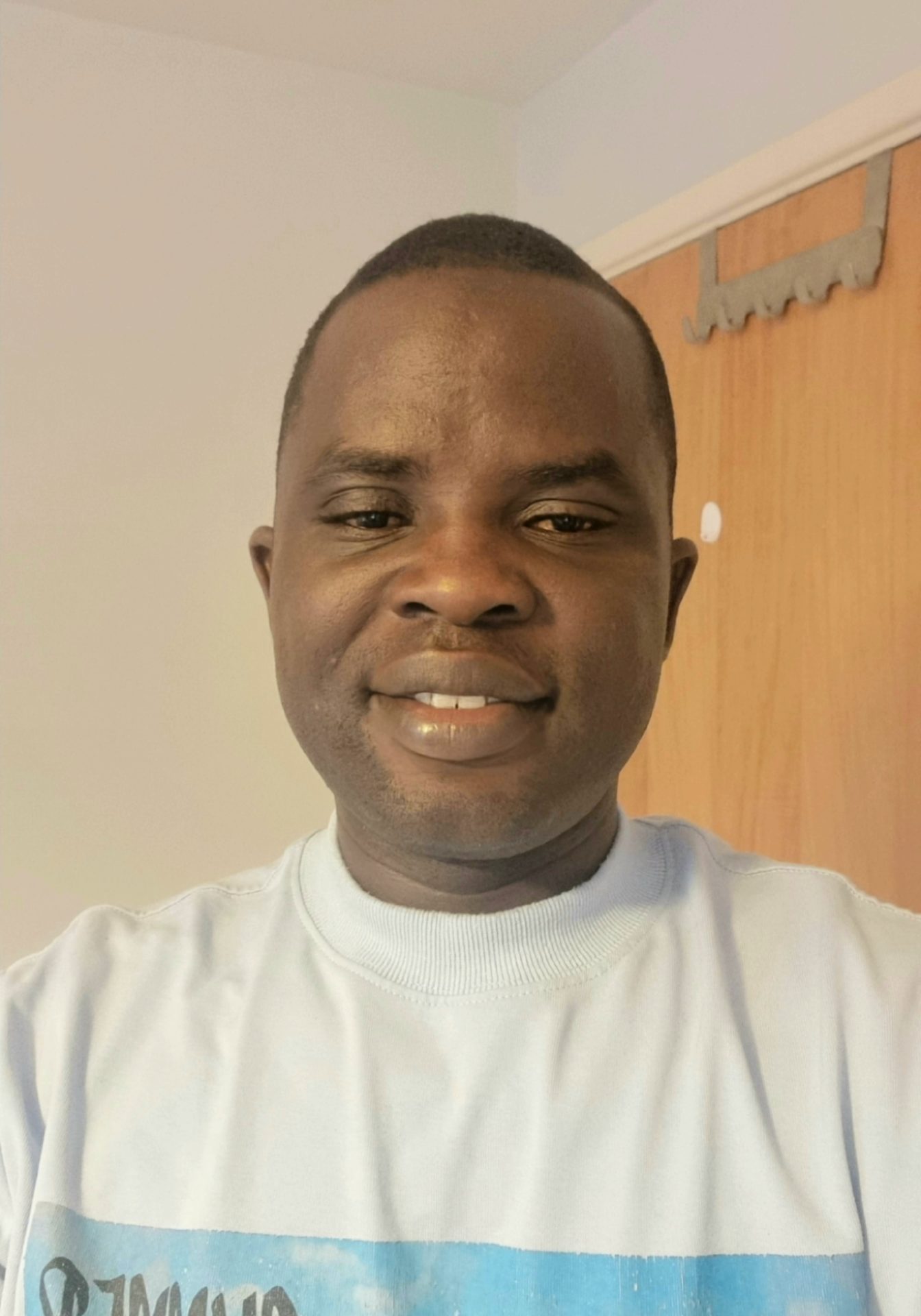Researcher of the Month - May 2022, Bonaventure Chia

Bonaventure Chia is a PhD researcher in the school of Philosophy, Religion and History of Science at the University of Leeds. His current research focuses on Religious Extremism and Deradicalisation Programmes in Nigeria.
Tell us a little about your ‘research journey’ – how did you get to where you are right now?
I never envisaged I could study for a degree in religious studies even though I was brought up in a Christian home and have committed to the faith. Growing up as a child, I always desired to be a financial expert and I applied several times for a place at university to study Banking and Finance but never got an offer. Having waited for three years after high school, I couldn’t wait any further. I then opted to develop a teaching career in religion, which was also one of my favourite subjects during high school. To pursue my new interest, I enrolled at the Benue State University where I graduated in 2007 with a BA in Religion and Philosophy, and in 2012, I earned an MA in Religious Studies at the same university. In 2015 I was employed as a lecturer by the Federal College of Education, Eha-amufu Enugu State Nigeria. It was there that I was nominated for a Tertiary Education Trust Fund (TETFund) scholarship to study for a PhD, having been offered a place here at the University of Leeds.
Who, or what, sparked your interest to work on your particular research area?
The desire for an end to the devastating effects of the activities of Boko Haram, the Islamic extremist group in Nigeria, has informed my decision to carry out this research. For over a decade, the group has continued to unleash acts of terror in Nigeria in the name of religion. A situation which has led to the destruction of lives and properties. Among such incidences are their bombing of the UN building in Abuja in 2011, the 2011 Christmas church bombing, and the abduction of over 276 Chibok schoolgirls in 2014, to mention a few. This situation has continued unabated, and the effects are overwhelming. According to the global terrorism index, compiled by the Institute for Economics and Pace in 2018, the group was regarded as one of the four deadliest terrorist groups in the world.
Several ongoing efforts have been made by the government to curb the menace and to return normalcy to the region. Recently, there have been interventions put in place by the government and Civil Society organisations to deradicalised members of the extremist group who are willing to disengage from the violent activities of the group and children who were rescued from the extremist group. The concern of my research is to examine the extent to which those deradicalisation interventions have impacted the beneficiaries’ convictions about Boko Haram ideology
I must also acknowledge that the mentorship of my supervisors Dr Jasjit Singh and Prof Adriaan van Klinken has also been impactful on my research
What are you currently, or about to start, working on?
I am currently in the second year of my PhD. I just returned from Nigeria where I conducted my fieldwork in the northeast region of the country. It was an interesting trip that was both resourceful and adventurous. I was able to interact with and interview my research participants who are mostly supposedly repentant Boko Haram members. Aside from my data collection, the trip availed me of the opportunity to visit the war-ravaged area where I witnessed the infrastructural and humanitarian crises caused by the activities of the insurgent group. At present, I am transcribing the interviews and attending relevant pieces of training that will support my research. I am also working toward presenting my research at a work in progress seminar to the research community.
In what way(s) do you feel your research examines the role of religion in public life and the relationship between the two?
The area of intersection between religion and public life in Nigeria makes an interesting case for my research. In Nigeria like most African nations, religion features prominently in the spheres of public life. Though the Nigerian constitution recognizes it as a secular state and has tried to separate the state and its institutions from religious affairs, the secularity has been in theory rather than in practice. Religion has played a pivotal role in the lives of many Nigerians, it has influenced almost all facets of their endeavours, be it social, political or economic life. It has become an identity marker that unites and divides them. The political class has also leveraged religion by using it as a tool for political mobilisation to manipulate the populace to their advantage. This has birthed continuous indignation and rivalry between the adherents of two dominant religions in the Country (Christianity and Islam) and has resulted in crises. This religious character of the people has made it extremely difficult for most of them to submit their loyalty to the nation as a secular state. This is evident in the persistent call by most Muslims for the institutionalization of Sharia (Islamic system of governance) in the country. Their quest has led to the proliferation of extremist groups such as Boko Haram in Nigeria with violent ideologies aimed at forcefully establishing an Islamic state. The consequences of their actions have been the devastating and incalculable destruction of lives and properties in northeastern Nigeria.
With the recent strategy of the government to engage the former members of the extremist group through deradicalisation interventions, it is expected that there will be substantial change in the extreme views of the participants in the programme. However, to what extent have such programmes influenced the beneficiaries’ convictions about Boko Haram Ideology? Is there any cognitive shift away from such extreme and violent ideology? This has been the concern of my research.
